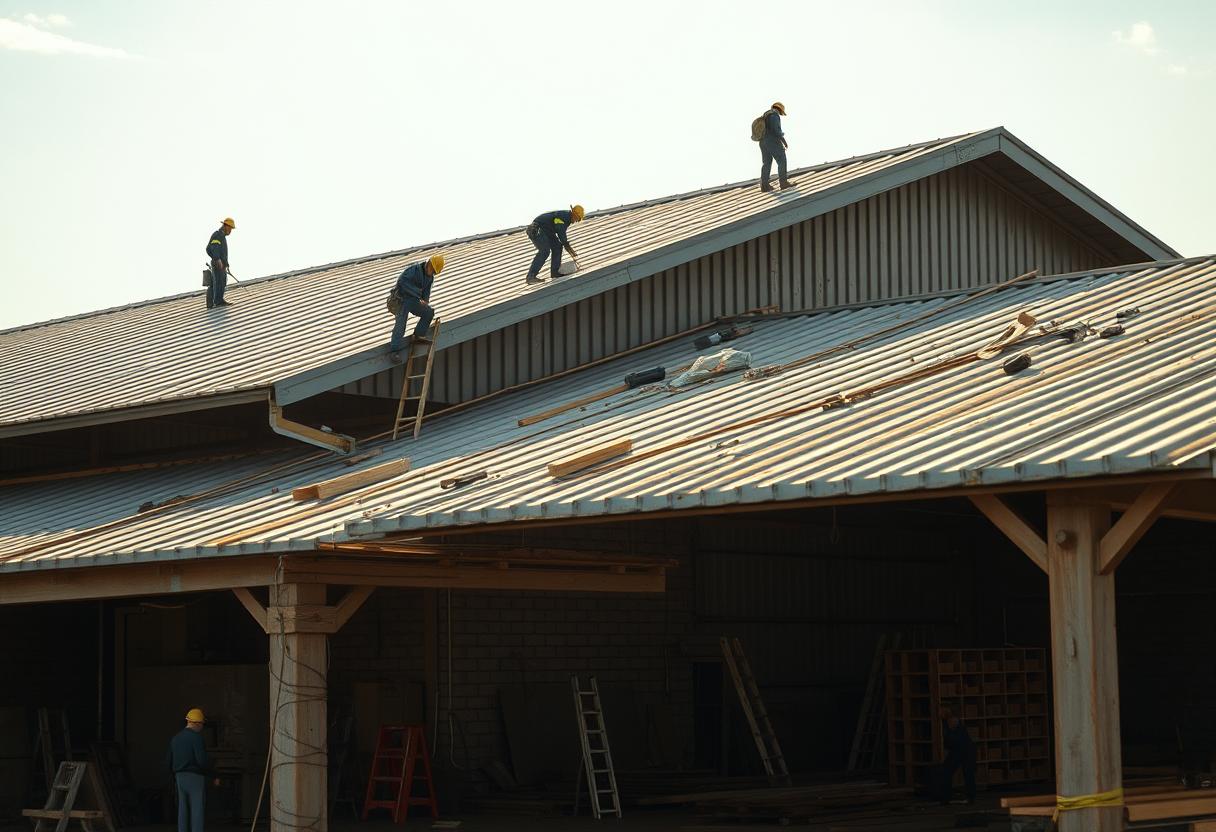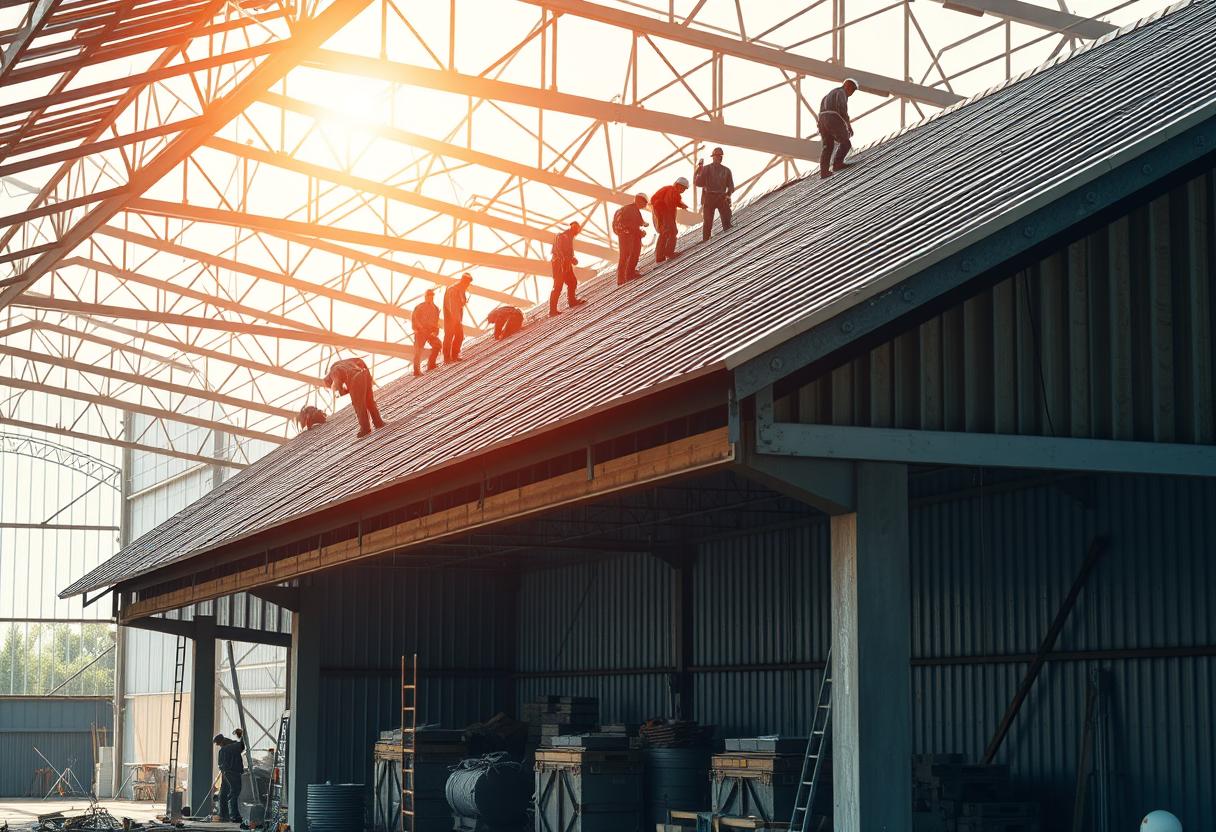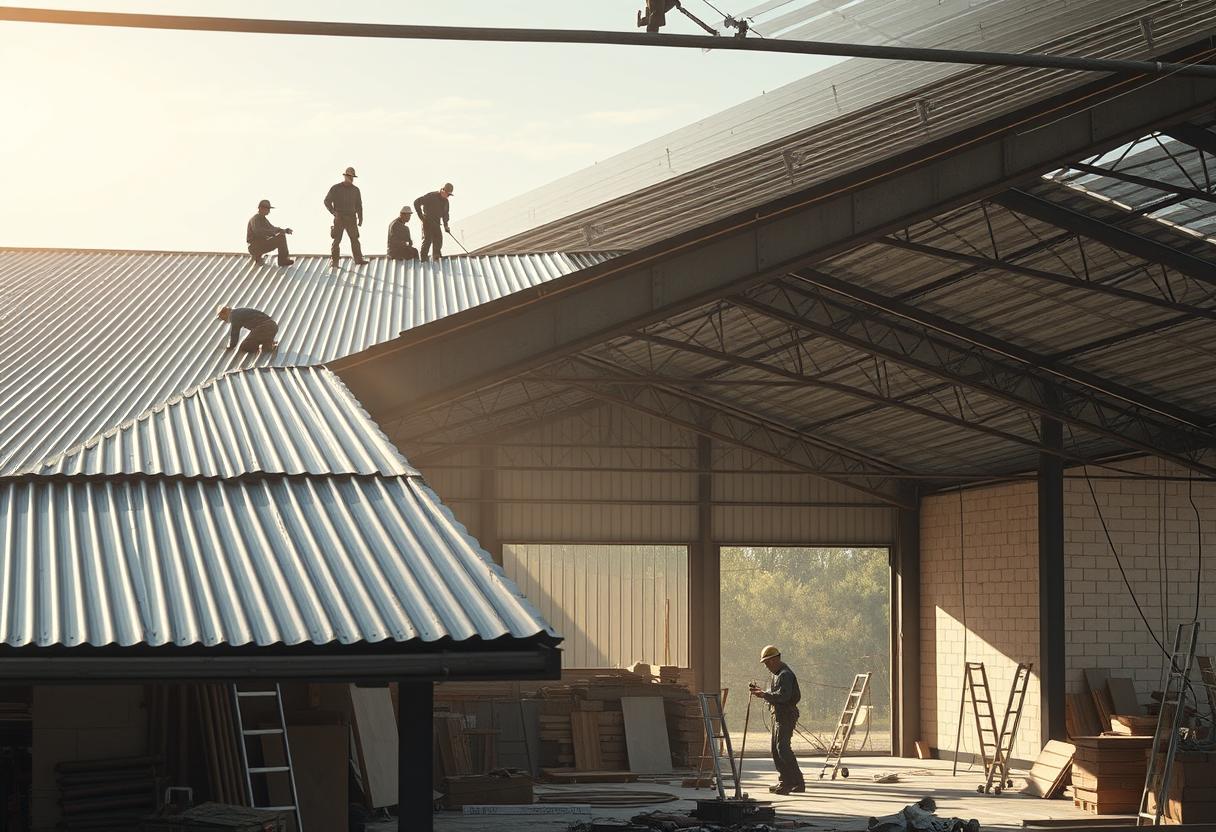In the context of Vietnam’s manufacturing industry expanding rapidly and demanding higher quality infrastructure, factory repair has become an essential need to maintain continuous production, ensure worker safety, and enhance efficiency. In 2025, factory repair trends are showing significant changes in materials, technology, and construction methods.
This article summarizes and analyzes the latest factory repair trends in 2025, giving businesses and investors a comprehensive view to make optimal decisions.
One of the standout features of the 2025 factory repair trend is the shift towards green and high-tech materials:
New technology insulated roofing sheets: These reduce indoor temperatures by 5–8°C and offer twice the corrosion resistance compared to traditional roofing.
Nano anti-rust coating: A thin yet highly effective protective layer against oxidation and chemicals, particularly suitable for factories in the food and chemical industries.
Recycled materials: EPS and PU panel boards made from recycled content help cut costs while meeting environmental protection standards.
Using eco-friendly materials not only helps businesses achieve green certifications but also improves their brand image.

2025 marks a strong move towards digitalizing the factory repair process:
BIM (Building Information Modeling): Simulates the entire factory structure before repairs, allowing risk prediction and cost optimization.
Drones: Used to inspect roofing, drainage systems, and hard-to-reach areas, reducing survey times from days to just hours.
IoT sensors: Installed to monitor temperature, humidity, and vibration, helping detect early damage and schedule preventive maintenance.
With technology, repairs are not only faster but also reduce labor costs and minimize errors.
In the past, many businesses only repaired when issues arose. The 2025 trend is preventive maintenance—regular inspections and replacements before breakdowns occur:
Scheduling maintenance quarterly or biannually.
Regularly checking roofing sheets, steel structures, and electrical/plumbing systems.
Using CMMS (Computerized Maintenance Management Systems) to track repair history.
This approach reduces the risk of production downtime and can save up to 30% compared to emergency repairs.
Factory roofs are directly exposed to rain, sun, and wind, making them prone to degradation. In 2025, roof repair focuses on:
Replacing leaky sheets with cold roofing or 3-layer insulated roofing sheets.
Using polyurethane waterproof sealant with high adhesion and a lifespan of over 10 years.
Installing polycarbonate skylight panels to save on daytime lighting costs.
These solutions ensure leak prevention while improving energy efficiency.

High temperatures in production areas greatly affect labor productivity. Therefore, many businesses combine repairs with cooling system upgrades:
Installing large-capacity industrial exhaust fans.
Adding evaporative cooling pad systems.
Designing additional vents and skylights to optimize airflow.
This creates a more comfortable working environment, helping workers maintain productivity and reducing heat-related accidents.
Instead of hiring separate contractors for each task, the 2025 trend favors turnkey factory repair contractors:
A single contract covering surveying, design, construction, handover, and warranty.
Reduces task overlap and saves time.
Overall cost is 10–15% lower than hiring separately.
Turnkey contractors also offer long-term warranties, giving clients greater peace of mind.
Factory repairs carry high risks—working at heights, high voltage, and heavy equipment. In 2025, safety standards are becoming stricter:
Workers must undergo safety training before construction.
Full protective equipment: helmets, safety harnesses, non-slip shoes.
Emergency response plans and on-site medical staff.
Investing in safety not only complies with regulations but also minimizes accident-related losses.
Beyond efficiency and cost, sustainability has become a key factor:
Installing rooftop solar panels for renewable energy.
Rainwater harvesting systems for production or landscaping use.
Using recycled materials to reduce construction waste.
These measures not only lower operating costs but also help meet ESG (Environmental – Social – Governance) requirements from international partners.

According to the Ministry of Planning and Investment, by 2025 Vietnam will have over 20 new industrial zones, which will also boost demand for repairs and upgrades in existing factories:
Bac Giang, Bac Ninh: Focus on electronics manufacturing.
Binh Duong, Dong Nai: Focus on wood, textiles, and mechanical industries.
Mekong Delta: Focus on food and seafood processing.
In these areas, repair services must meet tight deadlines to avoid production disruptions.
Conduct a thorough inspection before selecting a repair plan.
Choose reputable contractors with industrial zone experience.
Prepare a flexible budget to avoid unexpected expenses.
Combine upgrades to improve production efficiency.
Sign clear contracts covering timelines, materials, and warranties.

Building a townhouse today is not only a necessity but also an important long-term investment. With rapid urban development, families and investors are increasingly interested in the full package of townhouse construction services to save time and effort.

Building beautiful townhouses is becoming a popular trend in major cities as well as in developing areas. With the rapid pace of urbanization, the demand for housing goes beyond just comfort—it now also requires aesthetics, functionality, and long-term sustainable value.

Townhouse construction is one of the most common needs in major cities such as Ho Chi Minh City, Hanoi, and Da Nang... When deciding to invest in a new home, the first thing most investors care about is the construction unit price of the townhouse.

The cost of building a 2-storey townhouse is always a top concern for many Vietnamese families planning to settle down in urban areas. With the characteristics of being suitable for limited land area, full functionality and moderate investment, 2-storey townhouses have become a popular choice for the middle class.